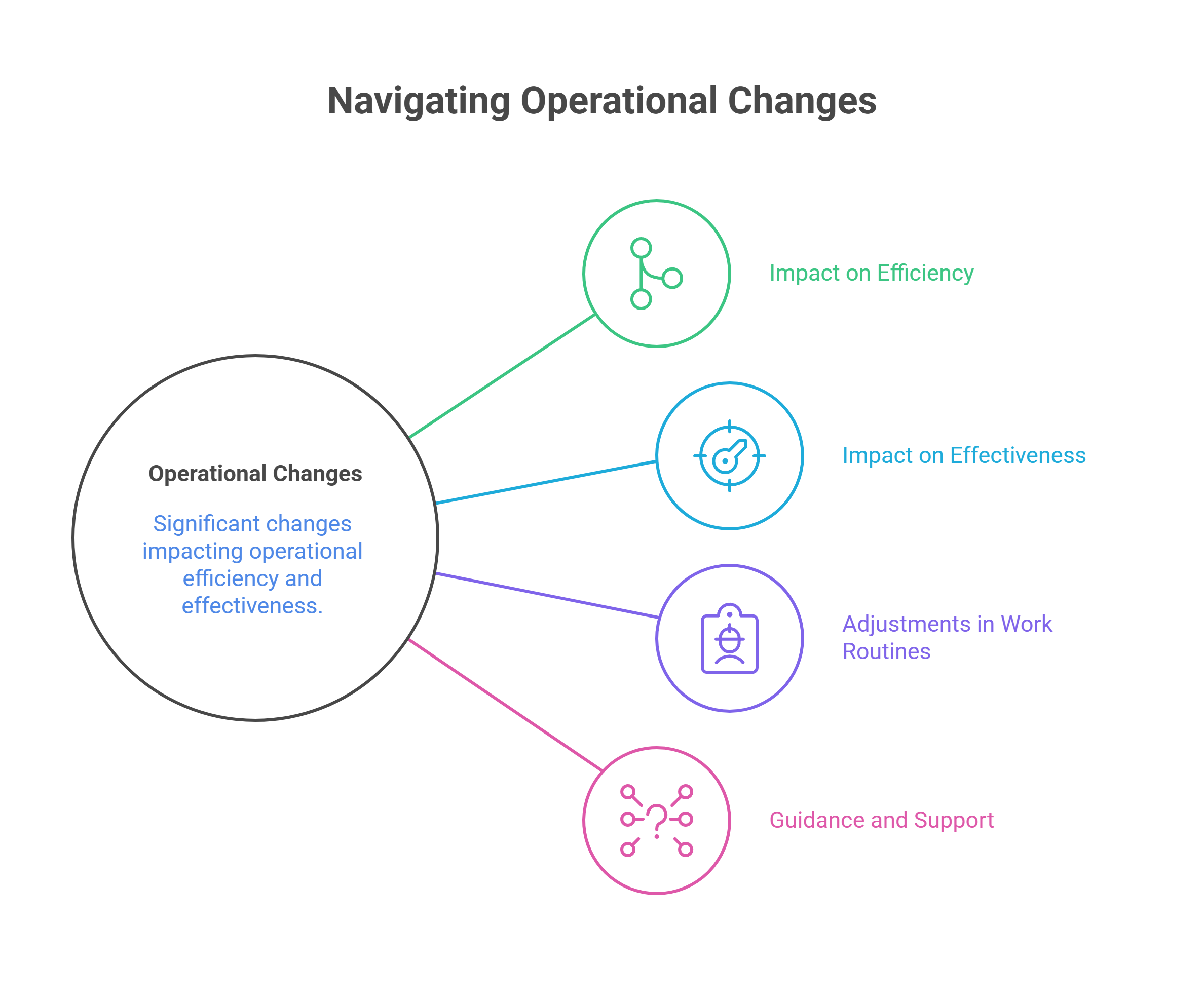So, you have just updated your aged care policy templates or brought in some new ones. Maybe the new regulations gave your existing ones a good shake-up. Whatever the case, now comes the tricky part—getting your team on board. Aged care is not just about procedures and paperwork. It is about people. And when it comes to introducing new policies, people need time, context, and support to truly understand what is changing and why.
In this guide, we are talking all things staff rollout—how to introduce your aged care policies without causing confusion, resistance or yawns during training sessions. You will also see how Governa AI can help make this easier, especially if you are still flipping through folders to explain policies.
Why Staff Rollout Matters More Than You Think
You can have the most well-written aged care policy templates in Australia, but if your staff do not know about them—or worse, misunderstand them—then they are about as useful as a screen door on a submarine.
Policies only work if people follow them. And people only follow them if they understand them. A successful staff rollout means your team knows:
- What has changed
- Why the change matters
- How it affects their day-to-day work
- Who to talk to when they have questions
Without that, you are setting your team up for mistakes, missed compliance targets, and possibly, a visit from the auditors with more red marks than a failed school exam.

Start with the Basics: What is Changing?
Before you even think about scheduling policy training, be clear about what is new. Has a regulation changed? Is this policy brand new or just a revised version of the old one? Did you update your aged care policy templates using an external tool like Governa AI’s ready-made templates? Your staff need to know this upfront.
Keep it simple. Instead of handing out a 50-page document and saying, “Here, read this,” give them a summary:
- What is the name of the new policy?
- What has changed from the old policy?
- Which team members are affected?
Use a cheat sheet, a short video, or even a whiteboard session in the staff room. You want your team to say, “Oh, I get it now,” not “What was that all about again?”
Get Managers Involved Early
If you are a facility manager or administrator, you already know your staff take their lead from you. If you act like the new policy is important, they will take it seriously. If you treat it like a box-ticking exercise, well—guess what they will do?
Before rolling out to the whole team, gather your senior team leaders, registered nurses, and department heads. Walk them through the policy training content. Ask them to identify how these changes may impact current routines, risks, or care delivery.
Not only does this approach create early staff awareness, but it also gives you honest feedback. Maybe there is a clause in the new policy that works well on paper but would fall flat on a busy night shift. Better to hear that early.
Use Clear, Everyday Language
When you introduce the new policies, speak like a person, not a policy manual. Instead of saying,
"Policy 4.2.6 states that incident reports must be escalated according to the predetermined escalation hierarchy…”,
try this:
"From now on, if a resident has a fall or an injury, the team leader must call the care coordinator straight away, not just file a report.”
No one wants to feel like they are reading a court document. You are talking to aged care workers, not lawyers. Speak clearly. Be relatable. Use examples from daily work. Your team will appreciate it.
Match Training to Your Team’s Needs
Aged care teams are made up of many roles—nurses, carers, cleaners, kitchen staff, activities officers, and administrators. Each one will be affected by new policies in different ways. One size does not fit all.
Tailor your policy training like this:
- Group sessions for policies that affect everyone (like infection control)
- Small team huddles for specific tasks (like medication handling)
- One-on-one refreshers for staff who need extra help (especially if English is their second language)
Keep sessions short. Use real examples. Ask questions. And remember—some staff learn best by doing, not by reading. If possible, walk them through a scenario or run a mock audit together.
Make Policy Access Easy
There is no use introducing a new policy if your team cannot find it later. This happens more often than you think—especially in homes still relying on binders, filing cabinets, or the ever-missing “shared drive.”
Consider digital options that provide quick access from any device. With Governa AI’s digital templates and cloud-based storage, staff can review policies anytime—whether they are on a break, doing night shift, or sitting in on a quality review.
You can find policy templates built specifically for Australian aged care settings here:
👉 https://www.governa.ai/policy-templates
Make sure every staff member knows:
- Where to find the latest policy
- What version is current
- Who to ask if they find a mistake or need clarification
Reinforce the Message
One meeting is not enough. Think of policy rollout like planting a seed—you water it often, or it dies. Your team needs reminders. Here are some practical ways to keep the message alive:
- Add a “Policy of the Week” to your staff bulletin board
- Use toolbox talks to highlight specific points
- Have team leaders ask one question from the new policy during shift handover
- Include policy checks in your regular spot audits or supervision meetings
It does not need to feel like a drill. Even a quick 3-minute chat at the start of the shift can go a long way.
Encourage Questions (Even the Weird Ones)
Some staff might feel too embarrassed to ask questions. Others might be quietly confused but still nodding to avoid looking out of the loop. Create a space where it is safe to ask—even if it is, “Can I still write incident reports in pen?” or “What if the internet is down during e-signing?”
The more questions your team asks, the clearer your rollout has been. If no one says anything at all, that might be a red flag. Encourage open discussion and check for understanding—not just attendance.
Track Your Progress
Accountability matters. You need to show that policy rollout was more than a chat in the lunchroom. Use sign-in sheets for training sessions. Keep records of who attended, what was covered, and what resources were handed out.
Some providers use digital tracking systems. Others simply update a training matrix. However you do it, make sure you can prove:
- Every staff member was trained
- Training covered the relevant changes
- Staff had a chance to ask questions and seek clarification
If you are ever audited, this will save you a headache.
.png)
Follow Up and Adjust if Needed
Even with the best planning, some rollouts miss the mark. Maybe you notice recurring incidents, policy breaches, or staff confusion. That is a sign to review—not just the policy, but how you introduced it.
Ask for feedback. Run a follow-up session. Look at whether the training method was right for the group. Maybe it is time to switch from paper handouts to visual walkthroughs or even short videos.
You are not starting from scratch—you are adjusting the sails so the ship stays on course.
Final Words: Make Policy Rollout Part of the Culture
If policy rollout only happens when there is a problem, staff start to dread it. But when it becomes a regular part of how your aged care home runs, it feels normal, expected, and even helpful.
At the end of the day, policies are not just rules. They are safeguards—for your residents, your team, and your organisation. The better your staff understands them, the better care they can provide.
And remember, you do not have to start from zero. Tools like Governa AI’s aged care policy templates can help you keep your policies accurate, accessible, and audit-ready. Visit
👉 https://www.governa.ai/policy-templates
to find templates written with Australian standards and regulations in mind.
Ready to Roll Out Your Next Policy with Confidence?
Get ahead of your next audit, protect your residents, and support your team with easy-to-understand policies and smart rollout strategies. Visit Governa AI today and discover how effortless aged care policy updates can feel.
Let your team focus on what they do best—caring. Let Governa AI help with the rest.


.png)
.png)



